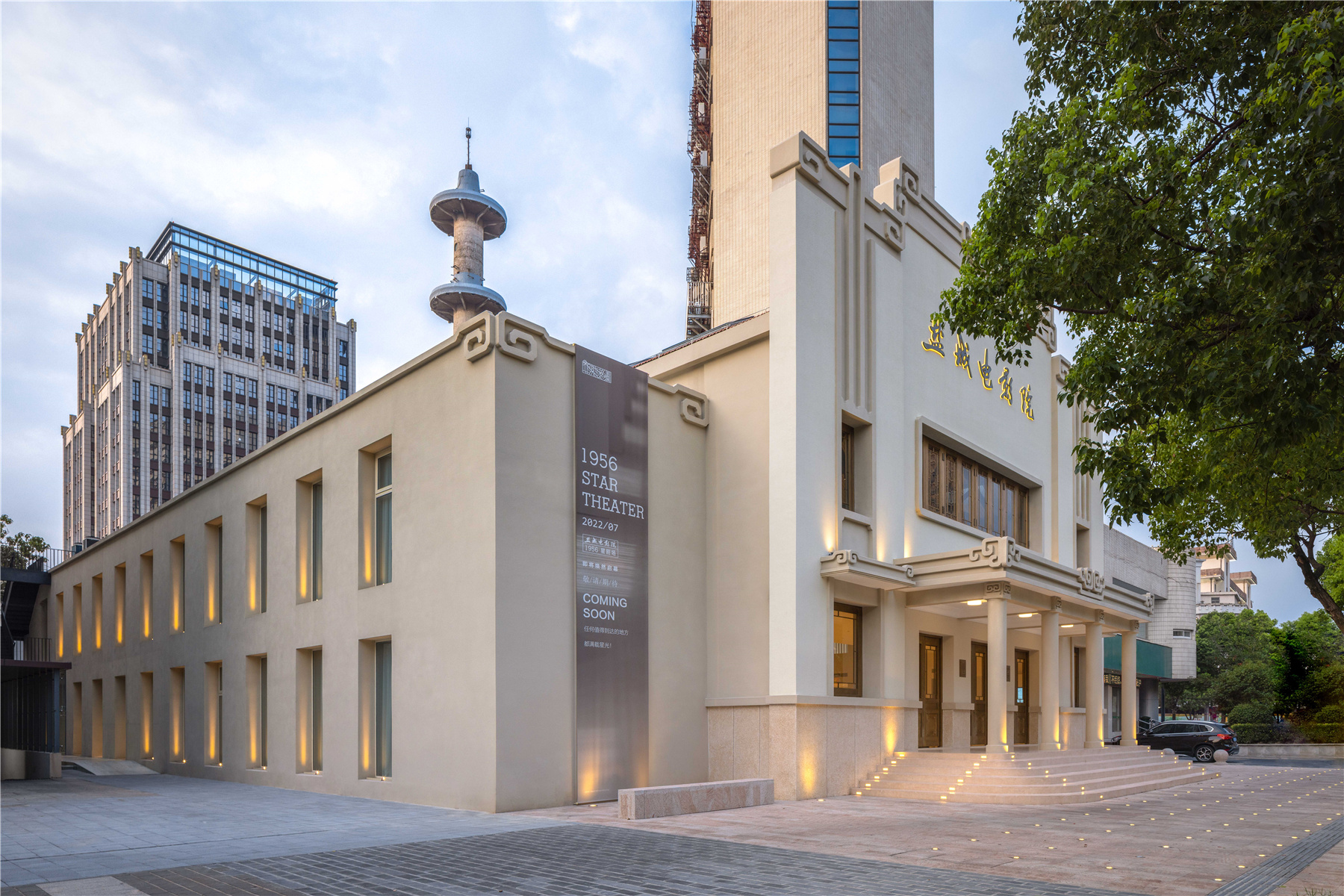
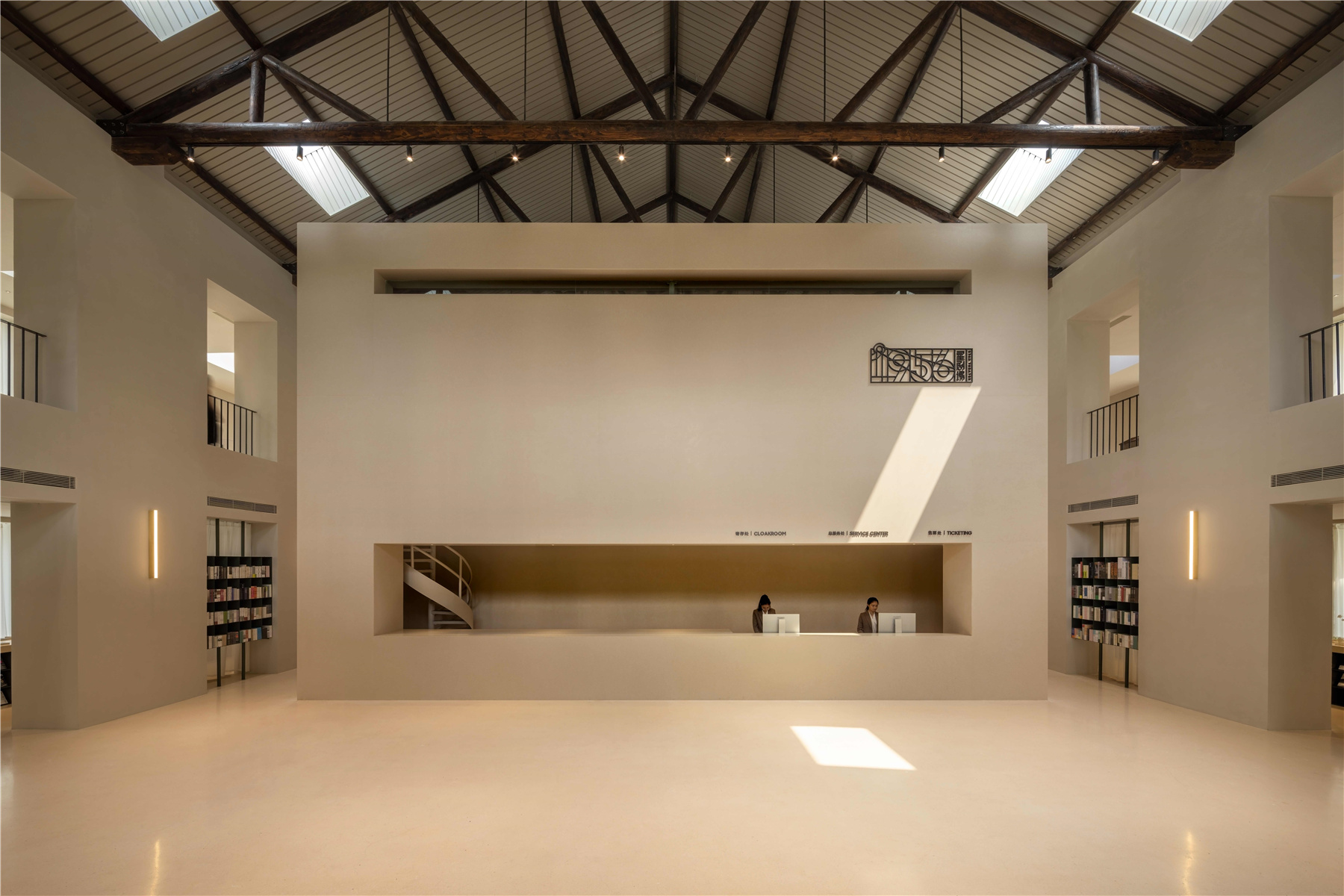
设计单位 Offhand Practice
项目地点 江苏盐城
建成时间 2022年4月
建筑面积 1155平方米
摄影 胡彦昀、余舒扬
本文文字由设计单位提供。
1956星剧场位于江苏省盐城市市中心繁华的建军中路。原建筑建于1956年,是建国后建军路上的第一座文化建筑,即盐城电影院。
The 1956 Star Theater is located in the bustling Middle Jianjun Road, the center of Yancheng City, Jiangsu Province. Built in 1956, it was the former Yancheng Cinema - the first cultural building back in that time.
既存建筑经历了两次不同时期的改造,在原始建筑红线外生长出了东西两侧约5米宽的侧翼,且整体功能上被各类商店分割,完全丧失了原有的文化属性。电影院历经66年的风雨,亟待全面翻新。业主希望我们对其进行设计修复与整合,满足以演艺剧场为主,展览空间为辅的功能需求。
The original building had undergone two phases of renovation over the 66 years, with a five-meter-wide wing expanding out from both sides of the original plot line. With various uses of retail stores by the previous tenants, the Yancheng Cinema has lost its cultural character. Over the years, it desperately needs to be refurbished. The client wishes we could reintegrate the design and recall the unity of the historical building, fulfilling the functions of theater and exhibition.
▲ 视频介绍 ©OFFHAND PRACTICE & HALF HALF
如何对既存建筑进行巧妙修复,来彰显对历史地标性建筑的尊重;又适当置入当代的设计语言,使新旧融合,充满活力又长存于这座城市,是我们这次所面临的挑战。
The main design challenge is to skillfully restore the heritage by showing respect to the history while appropriately implanting contemporary design language into the building, allowing the new and the old to blend seamlessly/seamlessly, simultaneously creating a vibrant and long-lasting landmark for the city.
在深入剖析建筑史料时,我们发现1956年的盐城电影院有以下两个显著特点:一是建筑本身呈东西向轴对称,极具仪式感;二是建筑正立面与室内结构都极具当时特定年代的历史建筑风貌,即建筑正立面被浮雕云纹勾勒,室内屋顶则由木结构支撑。
According to the historical dossier, we have analysed two significant characteristics of this building: first, it is axisymmetric in the east-west direction, which evokes a sense of ritual; second, the main facade is outlined by an embossed cloud pattern, and wood structures support the interior roof, both features symbolise the architectural style of a specific era at that time.
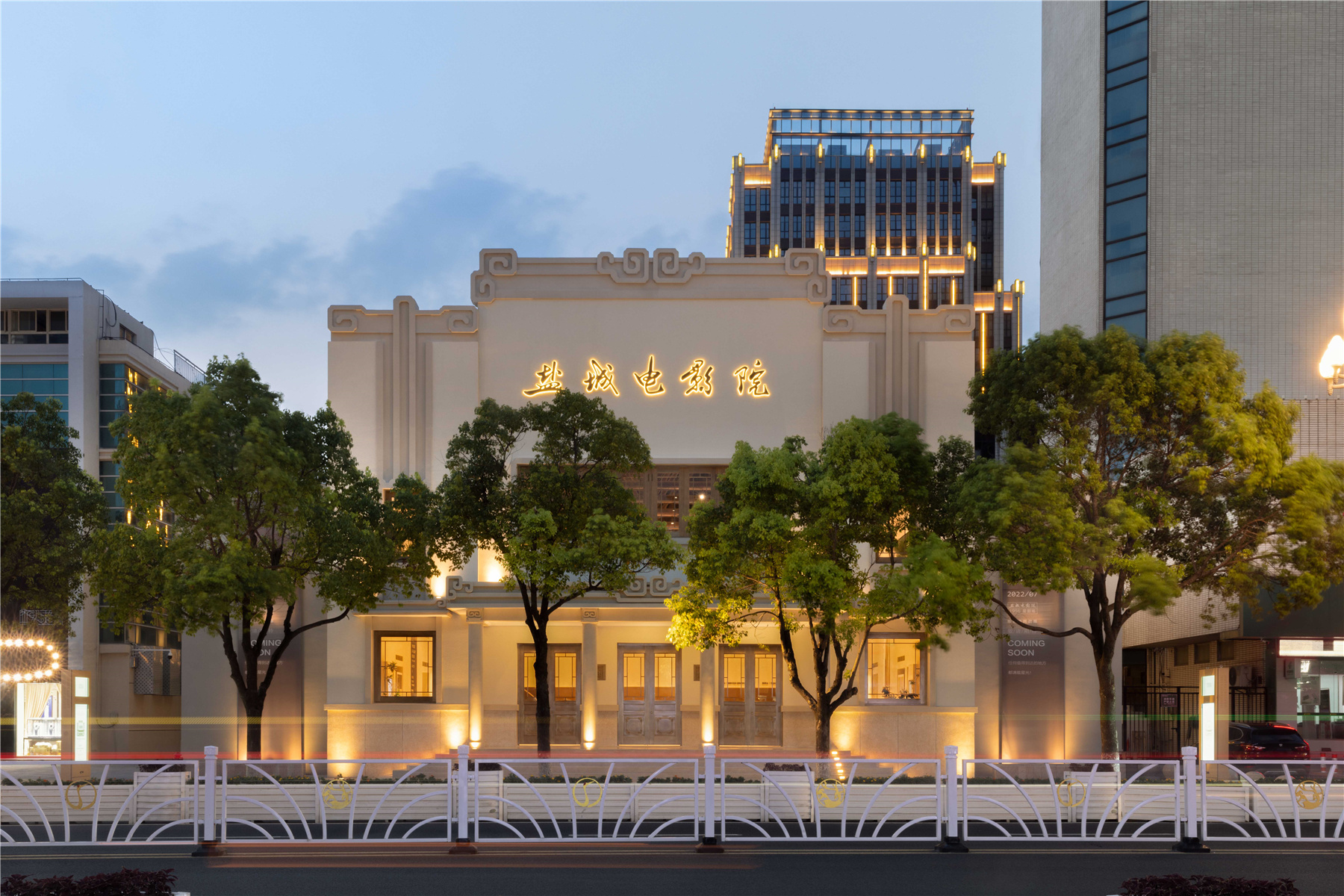
我们小心翼翼地辨别着在何处需要置入新的设计语言,又应该在何处把历史完好无损地保留。我们复原了原始建筑正立面的每一处细节,也完整保留了原始建筑结构;两侧侧翼则被我们用当代设计语言重新构建,谦卑地附着在原始建筑两侧。
We carefully identify where the new is to be inserted and where the old should remain intact. While restoring every detail of the original front facade and preserving the existing structures, the two wings are reconstructed in a contemporary design language, humbly attached to the original building.
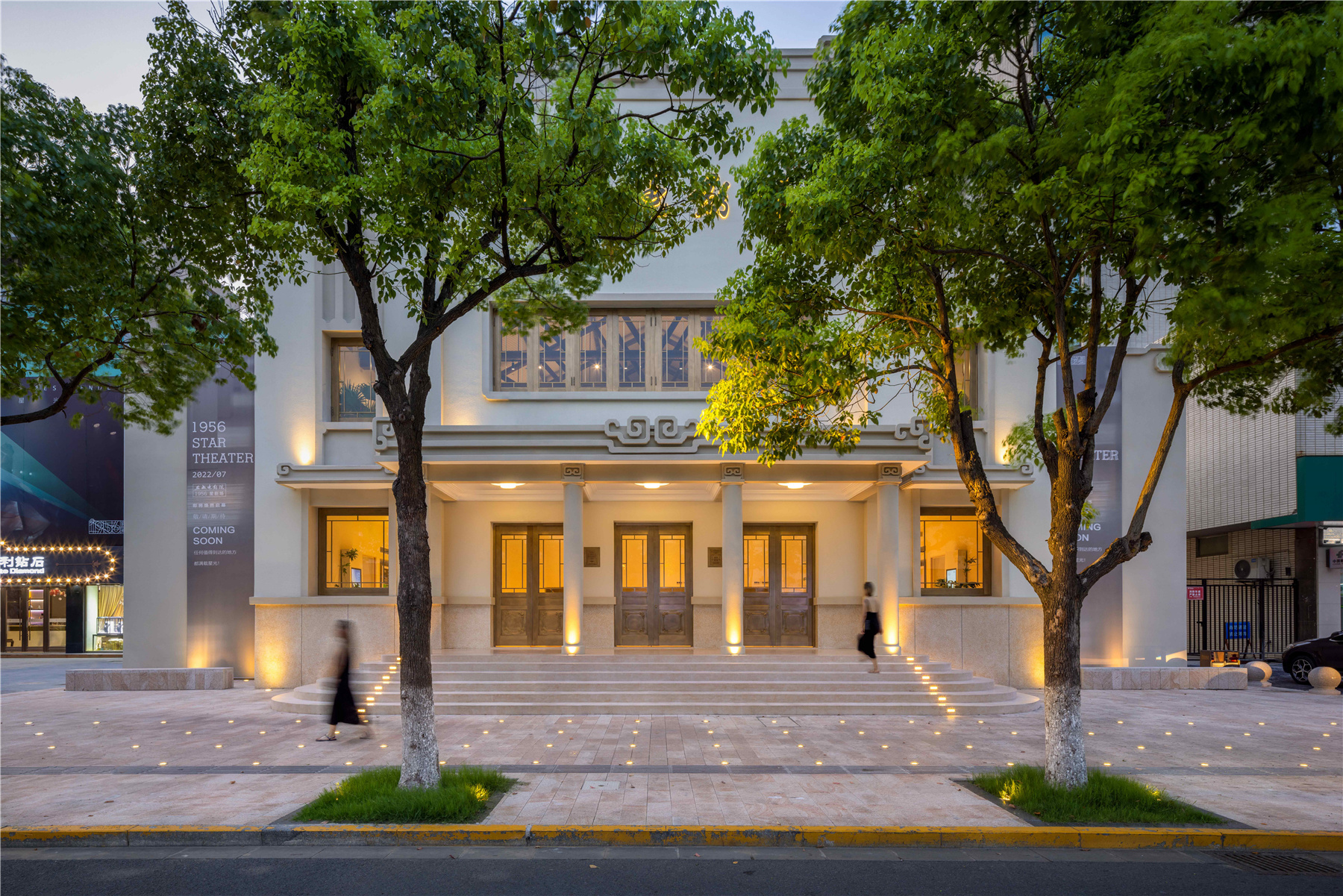
在室内,我们依着原始柱体的点位,在墙体上凿出了上下两层门洞,且被延伸到了两侧侧翼的外立面,室内随之衍变成了简洁明朗的展览空间。在充满历史感的木结构支撑的屋顶之下的中庭,则拔地而起了一个十分现代的夯实剧场建筑,各个空间自然而然地流动起来,人们可以自由穿行其中。至此,整个建筑集演艺剧场与展览空间等多功能为一体,由外到内呈轴对称极具仪式感,新与旧在同一秩序中融合并产生了对话。
In the interior, we dig out openings in the walls for both floors based on the original columns' positions, extending the openings to the side facades of both wings, and transforming them into exhibition spaces. Under the historical wood roof of the atrium, a modern and solid theater has risen from the ground. The rhythmic flow created by these openings generates a physical connection among the spaces, thus triggering spatial intrigues. At this point, the theater and the exhibition spaces harmonise as a whole, which is axisymmetrical in both architecture and interior, achieving a strong sense of ritual. At the same time, the old and the new integration in the same order and create a dialogue.

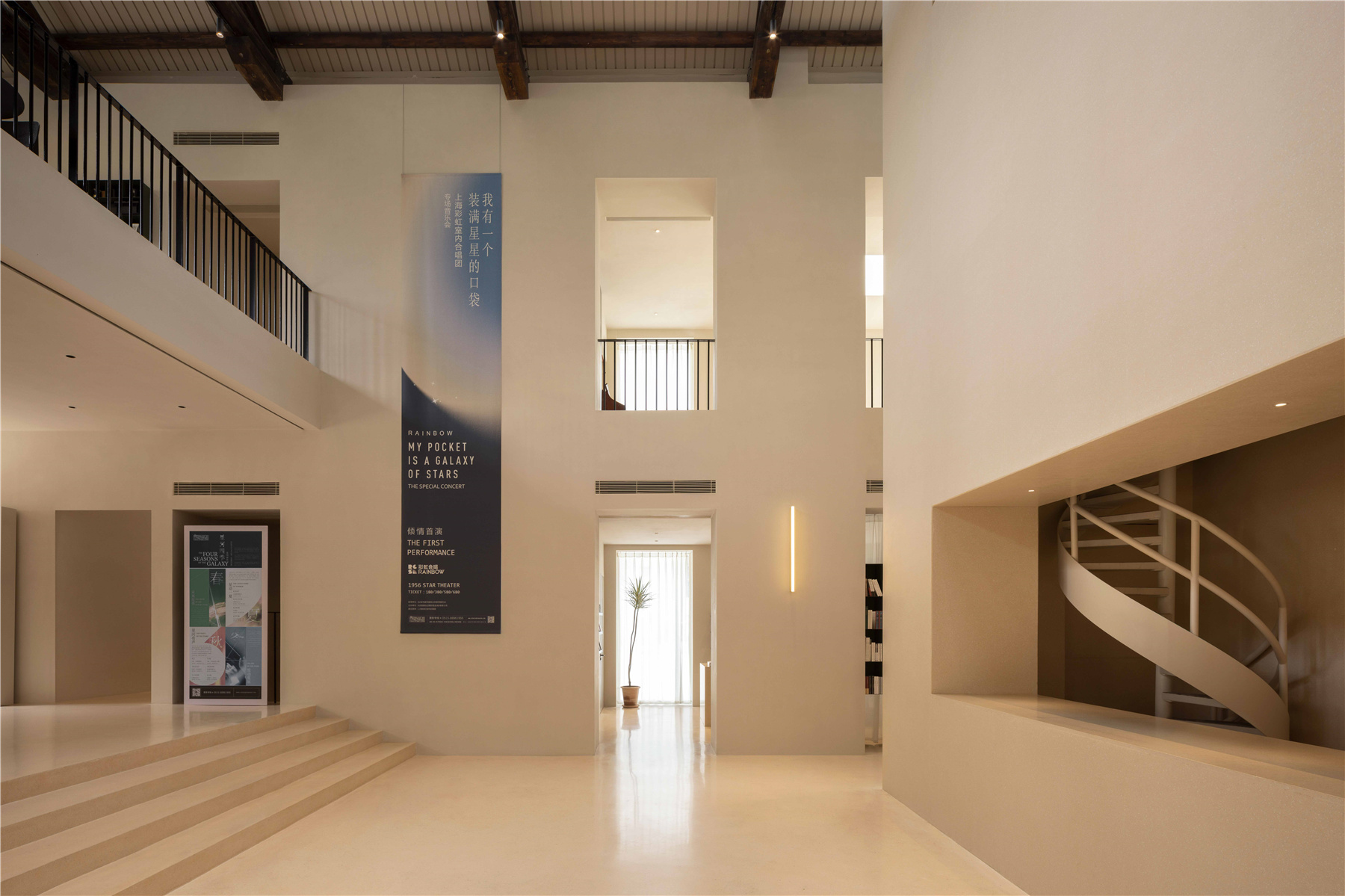
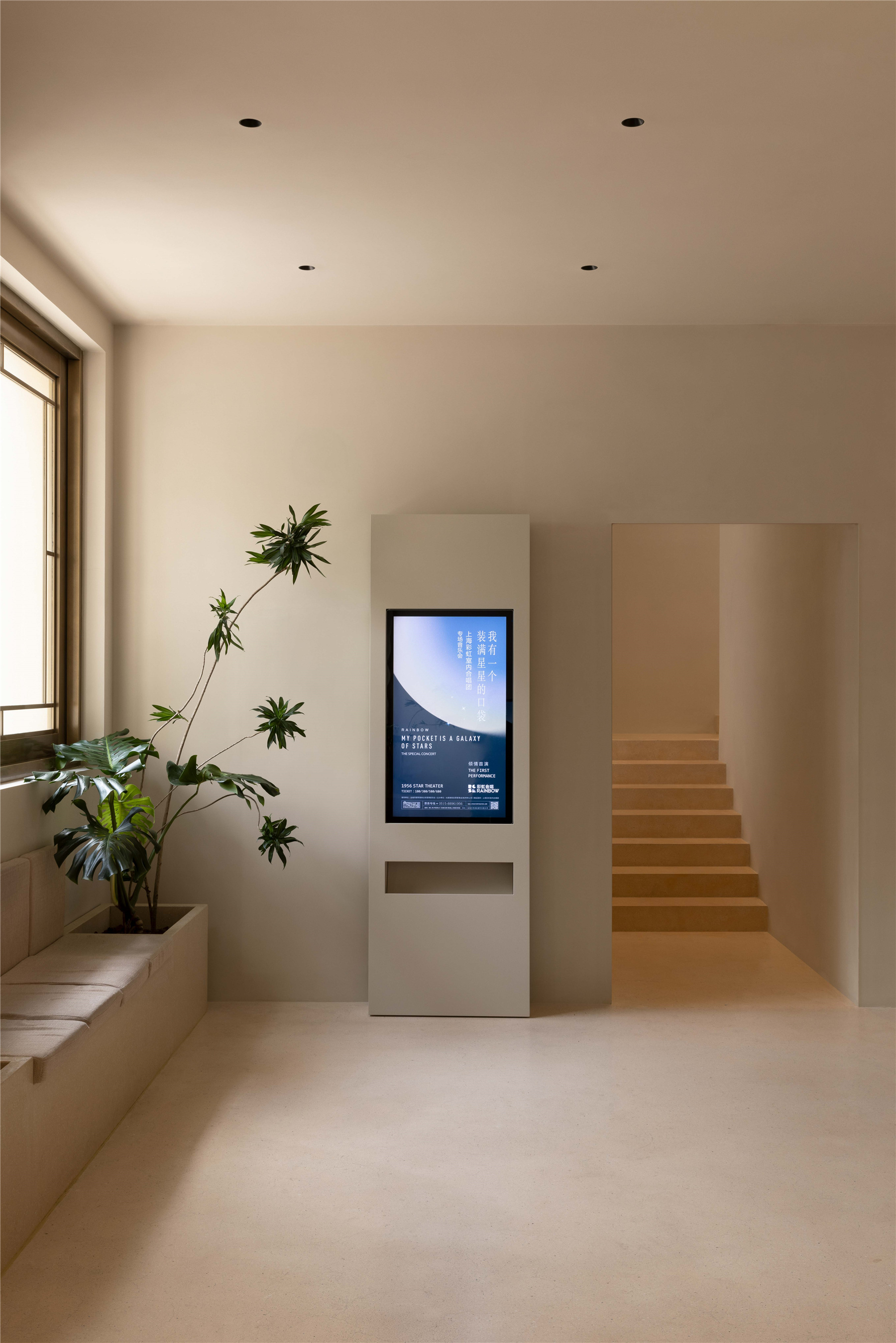
在建筑原始外立面肌理的表达上,我们使用了质感粗粝的拉毛漆,底部则用夯实的水洗石墙裙包裹,强化了其历史建筑的风貌;两侧侧翼建筑则选择了质感细腻且现代的真石漆,新与旧之间既存在微妙差异也实现了整体融合。
In terms of the material expression of the facade, rough-textured paint and exposed aggregate skirting are used to enhance the style of the historic building, and delicate stone paint is applied for the wings. The subtle differences among them are seamlessly coherent.
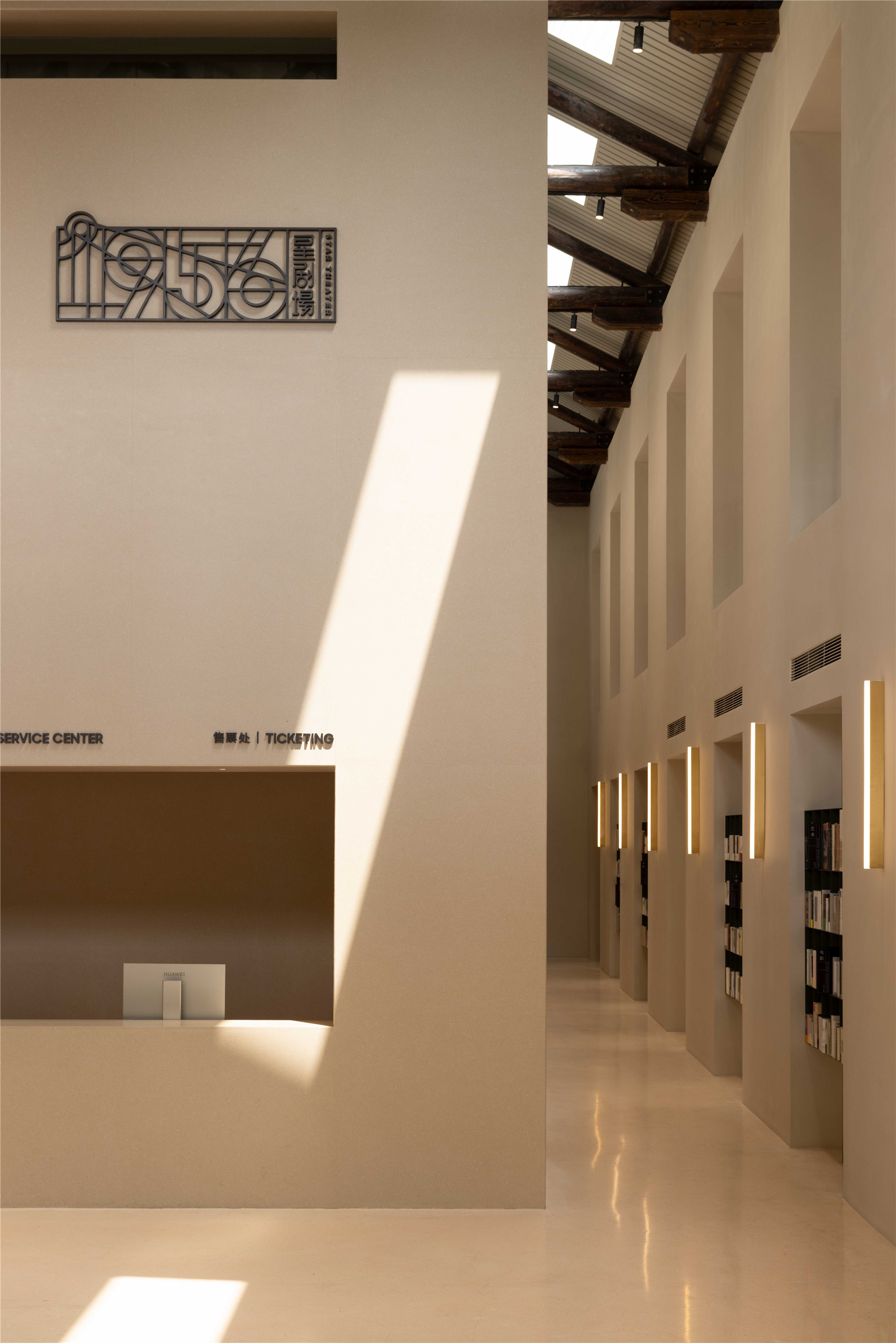
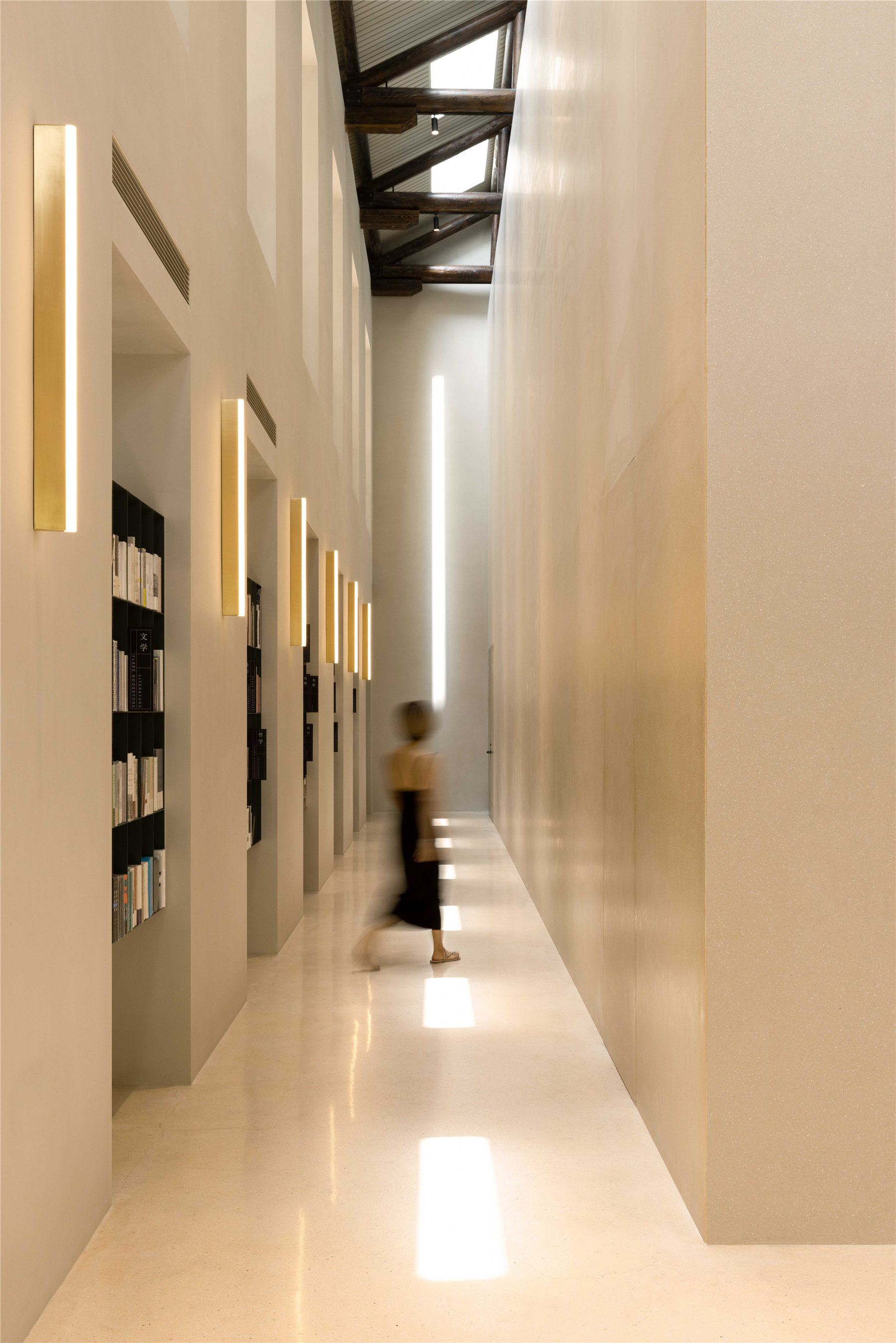
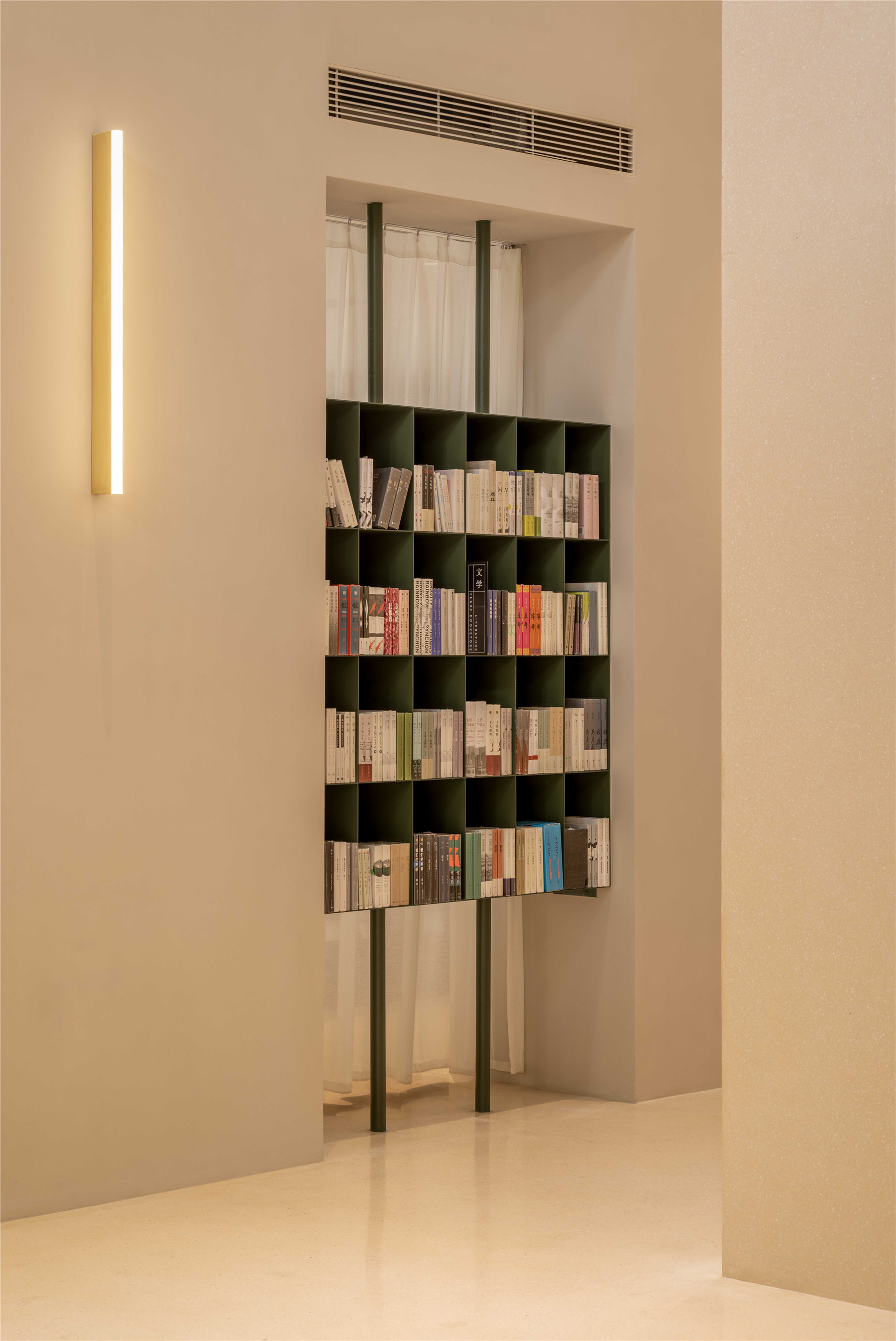
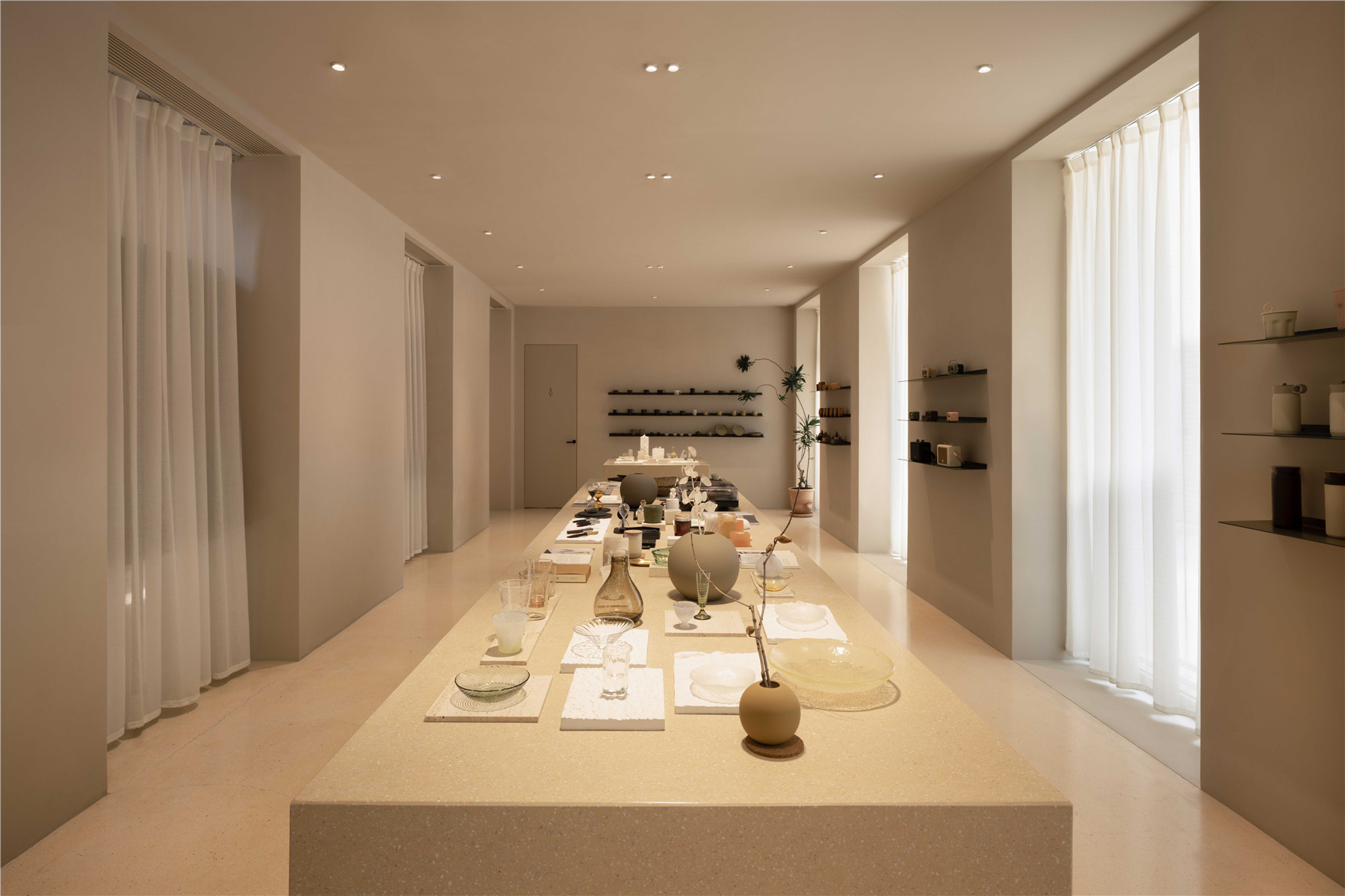
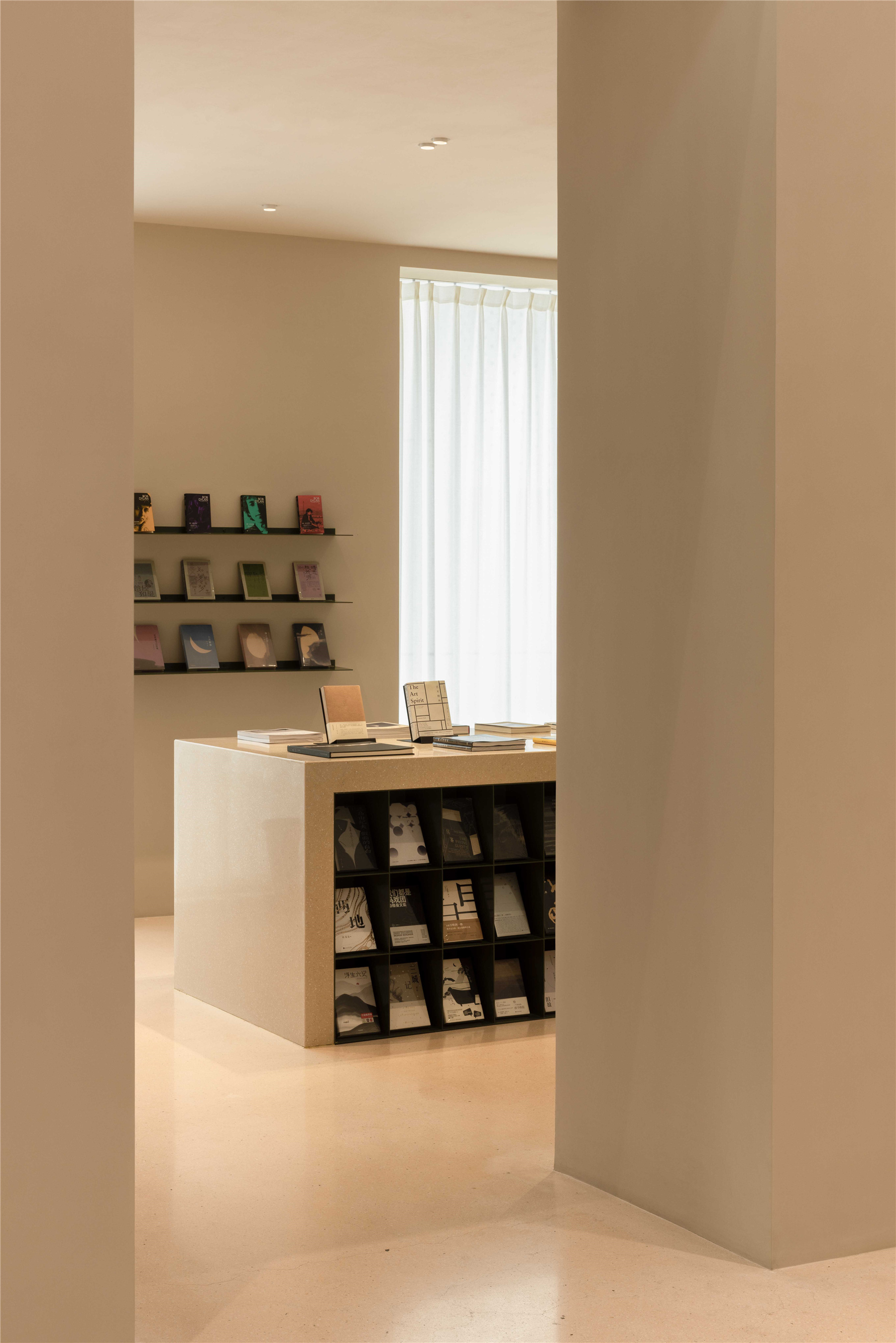
室内材质运用了大量质感丰富的微水泥涂料,与空间中富有历史感的木结构交相呼应;地面则使用了当时特定年代流行的水磨石,由室外台阶延伸至室内地面,又从地面生长出了夯实的剧场建筑。连续的材料运用进一步加深了建筑与室内之间的联系。
As for the interior, we use plenty of micro-cement paint with rich texture, which corresponds with the historical wood structures in the space; the floor is made of terrazzo which was popular at that time, extends from the outdoor to the indoor, and grows into a solid theater. The continuous flow of the materials deepens the connection between the architecture and the interior.
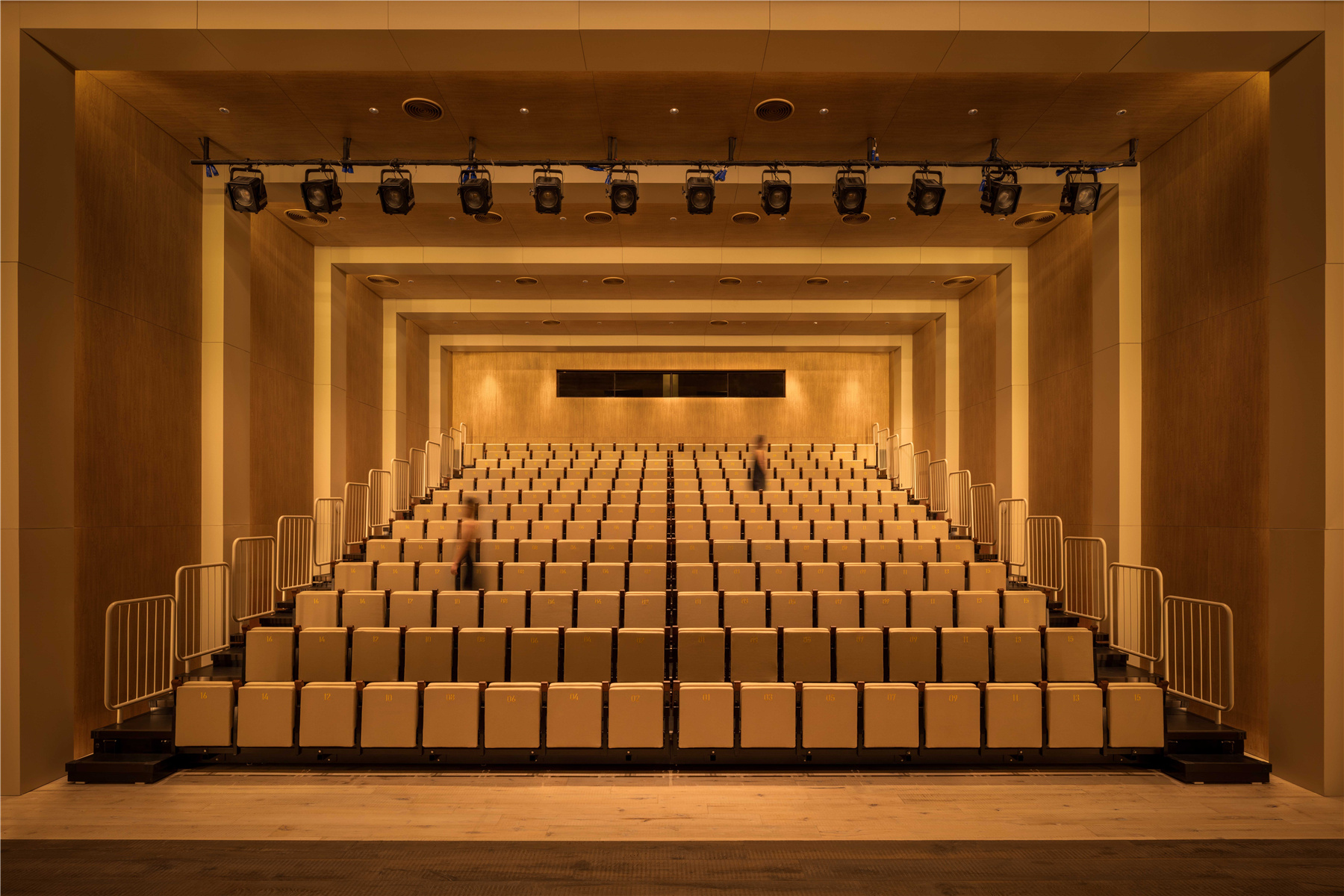
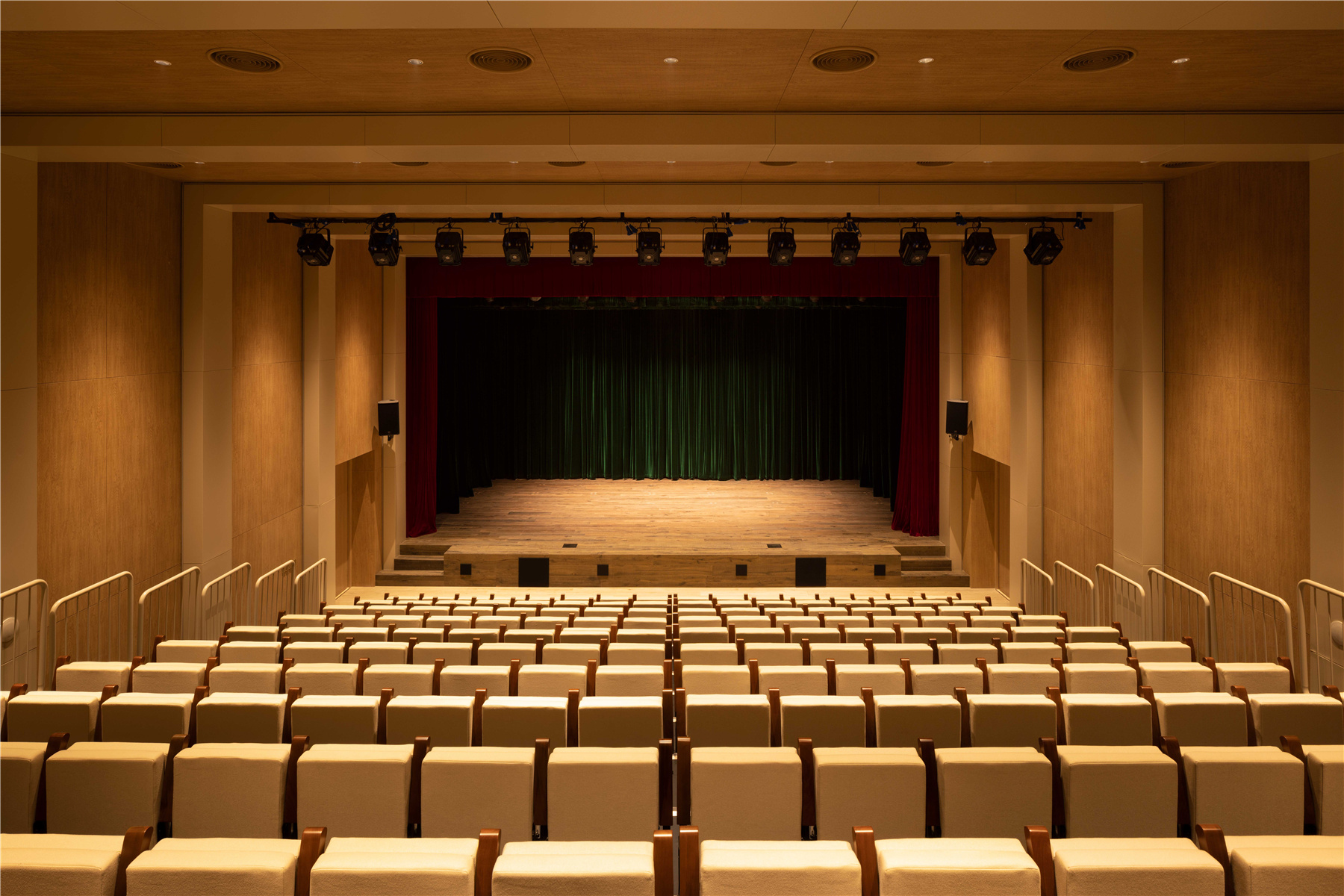
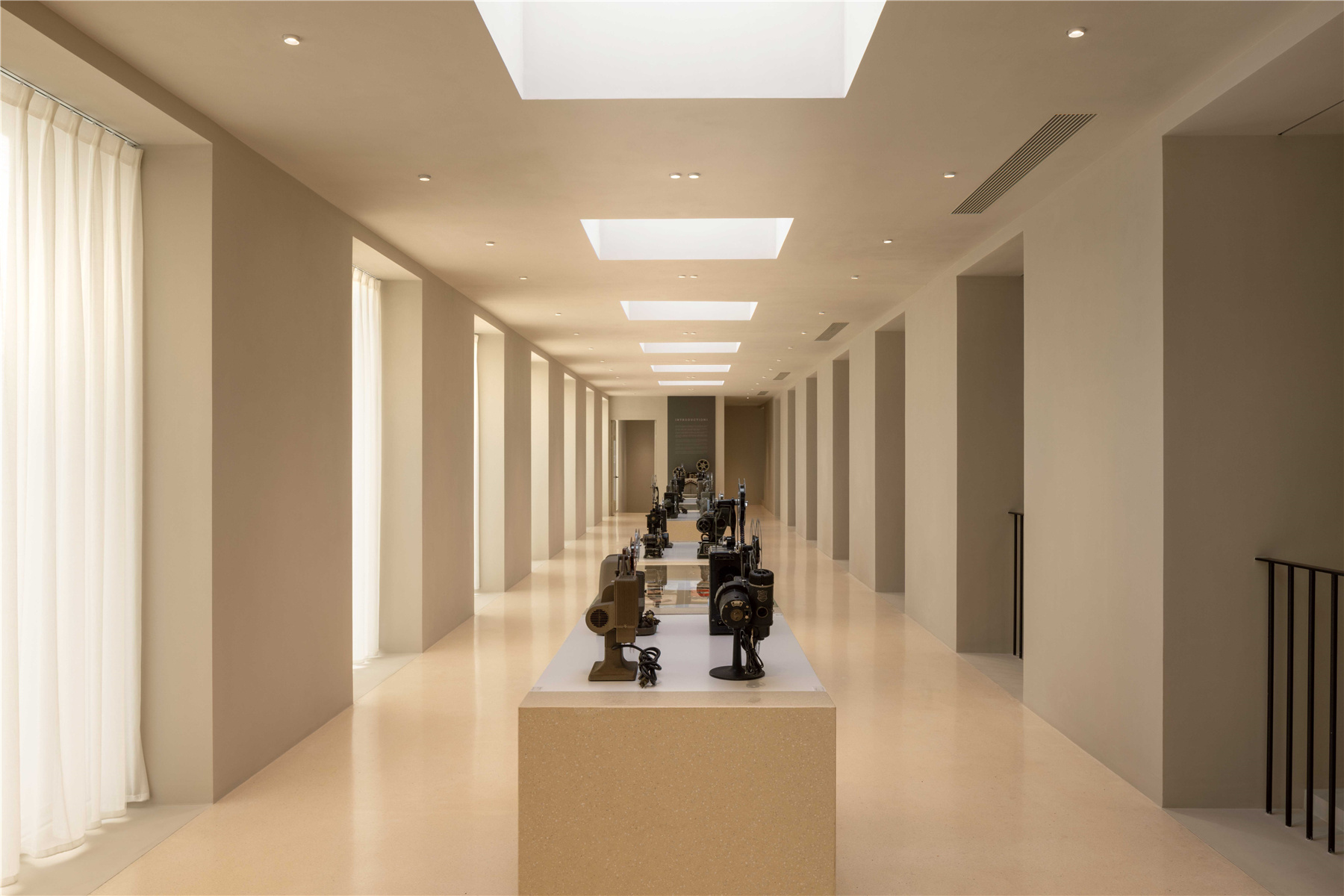
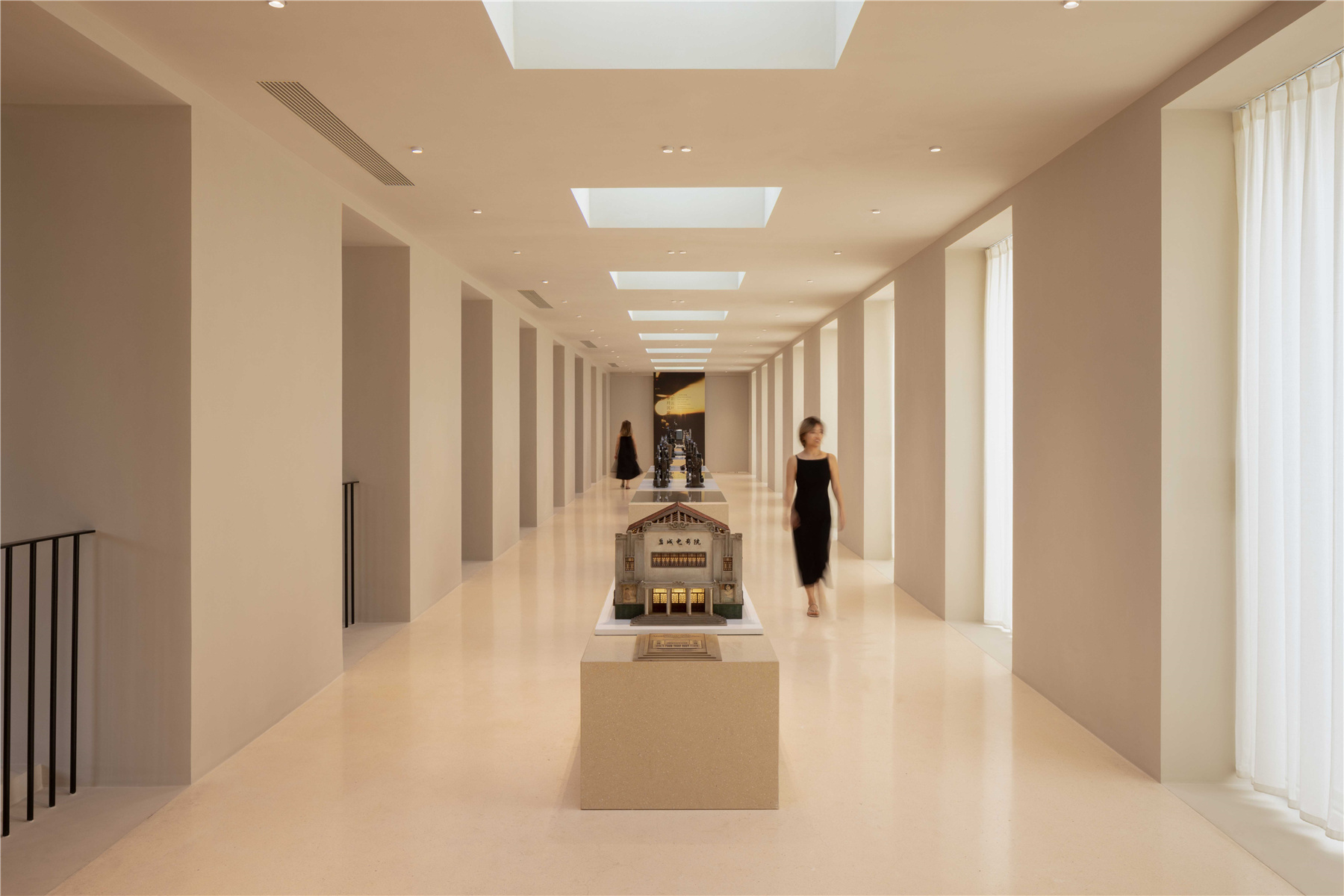
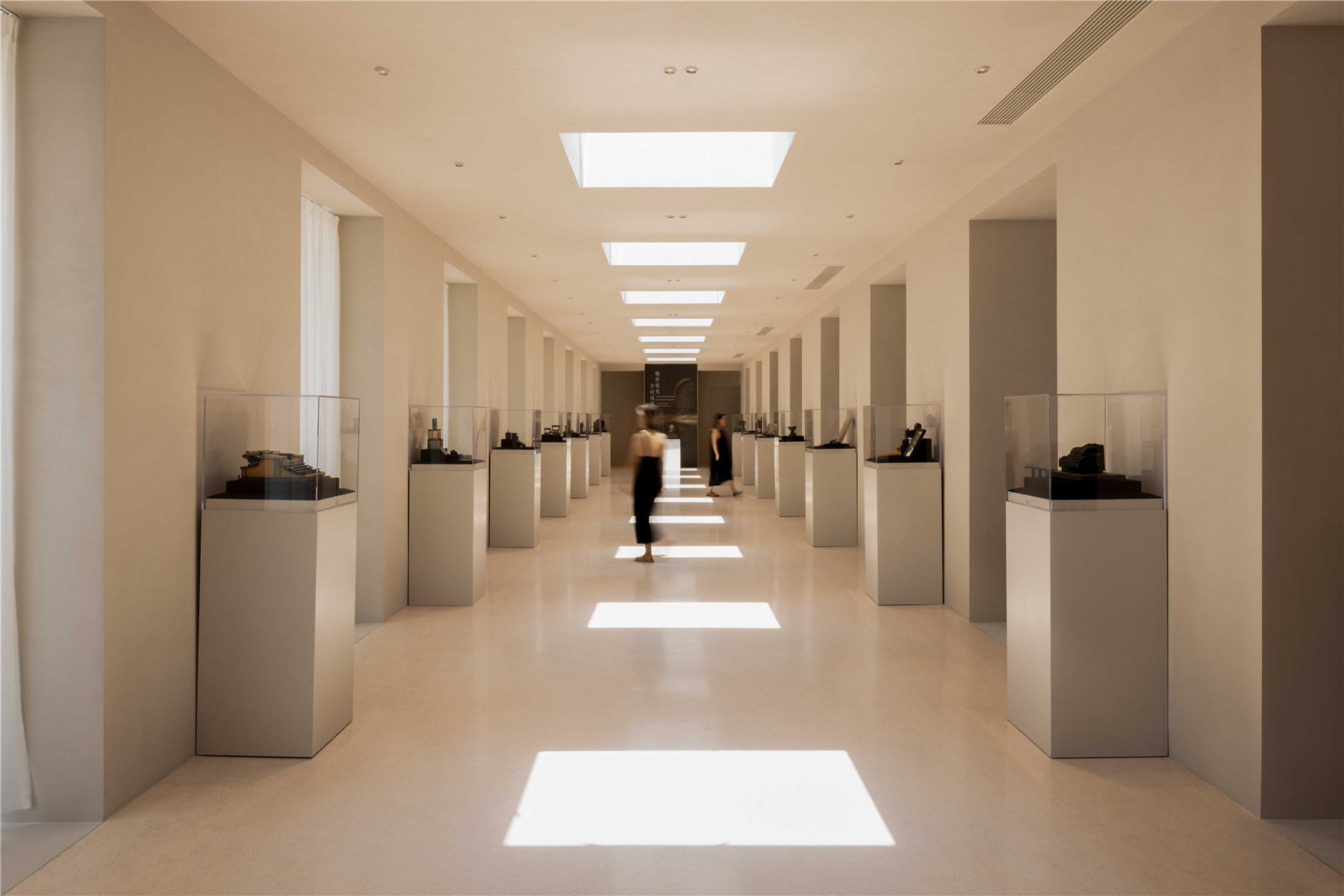

1956星剧场落成之后,承载的并非只是观演功能,还变成了盐城的城市文化会客厅。在没有演出的寻常日子里,我们希望人们仍然可以在这里阅览图书,了解电影历史,感受艺术与文化的交融。
Upon its completion, the 1956 Star Theater not only carries the performance function and also serves as an urban cultural hall in Yancheng. During the ordinary days when there are no performances, the citizens could still explore the space and feel the fusion of art and culture.
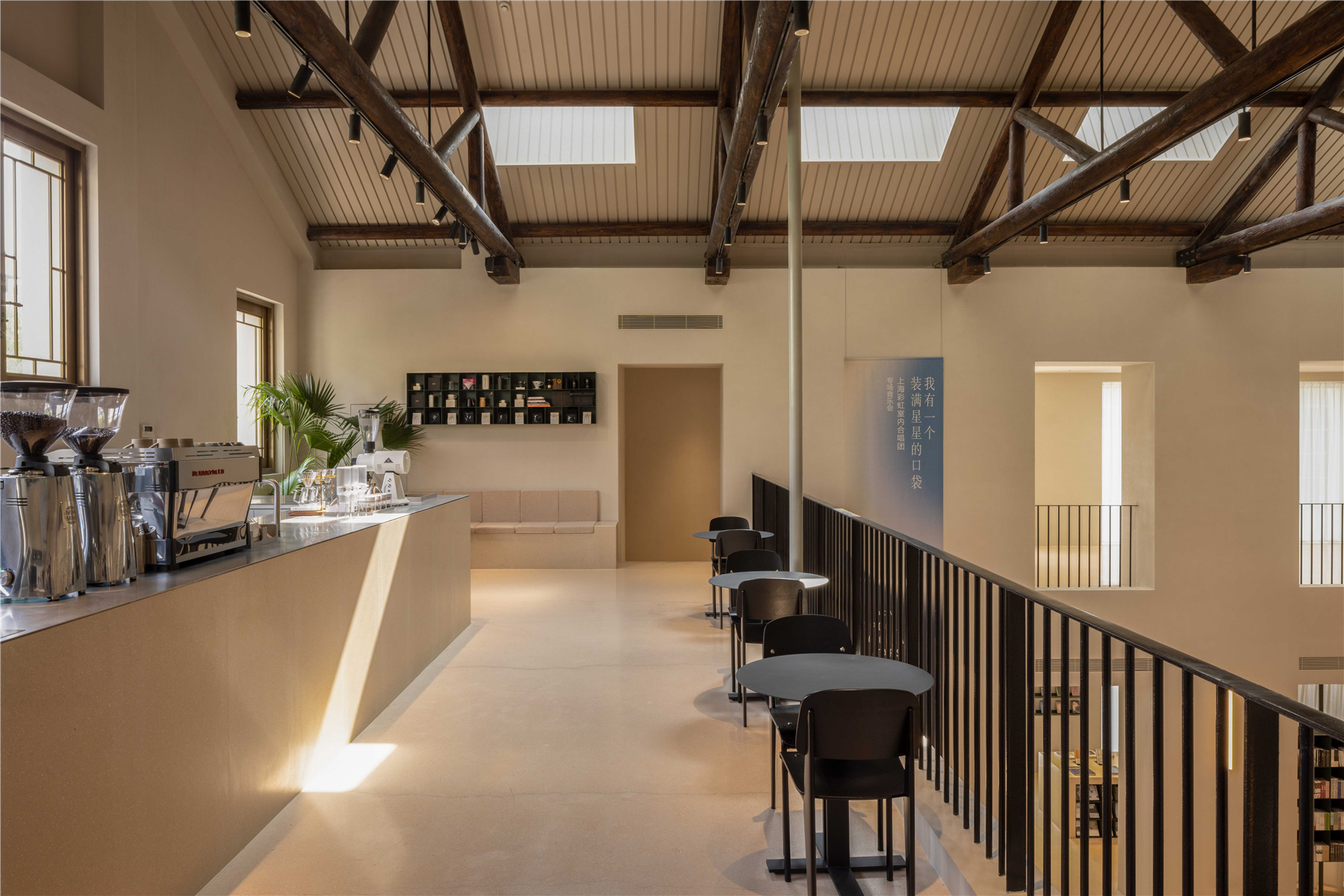


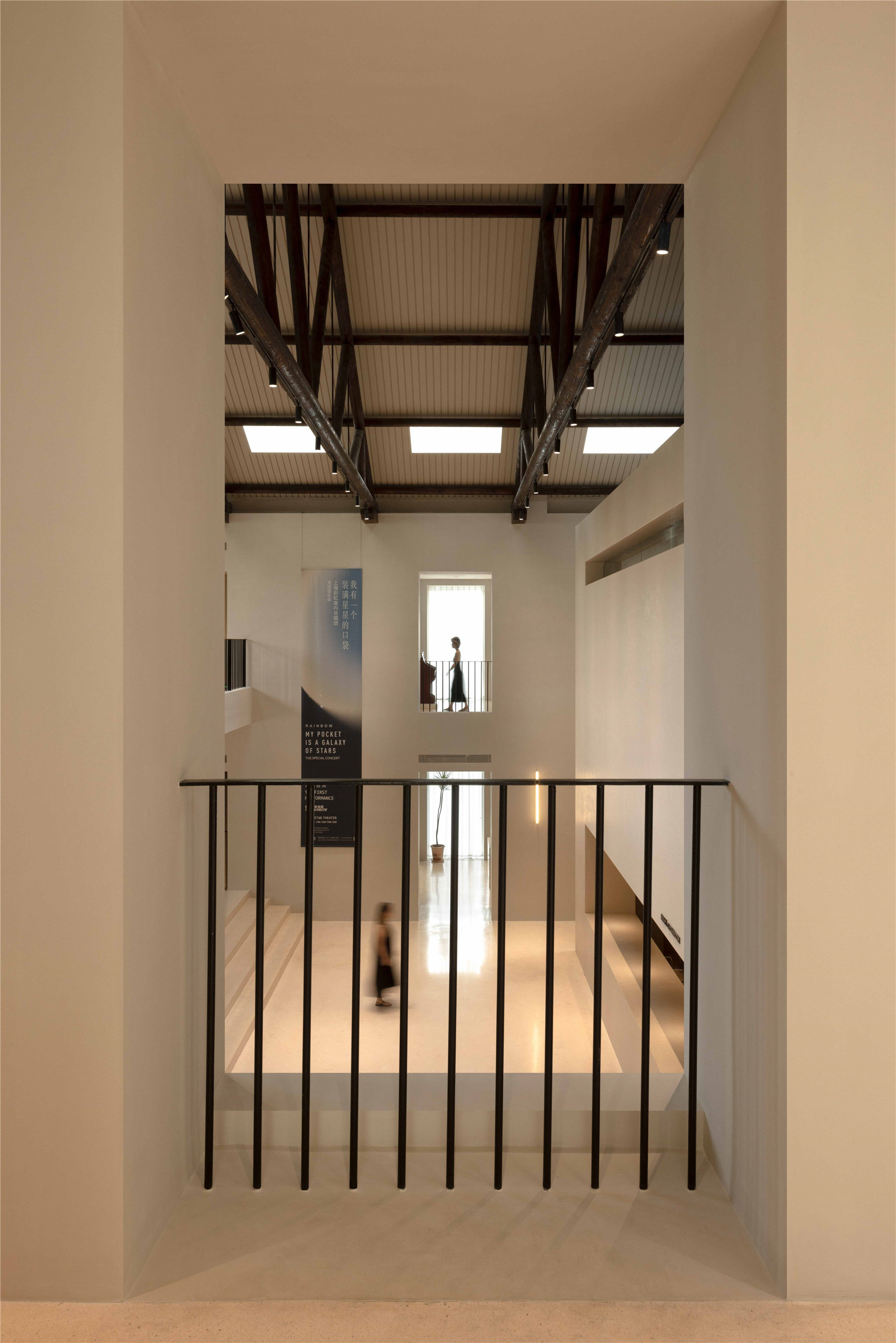
设计图纸 ▽
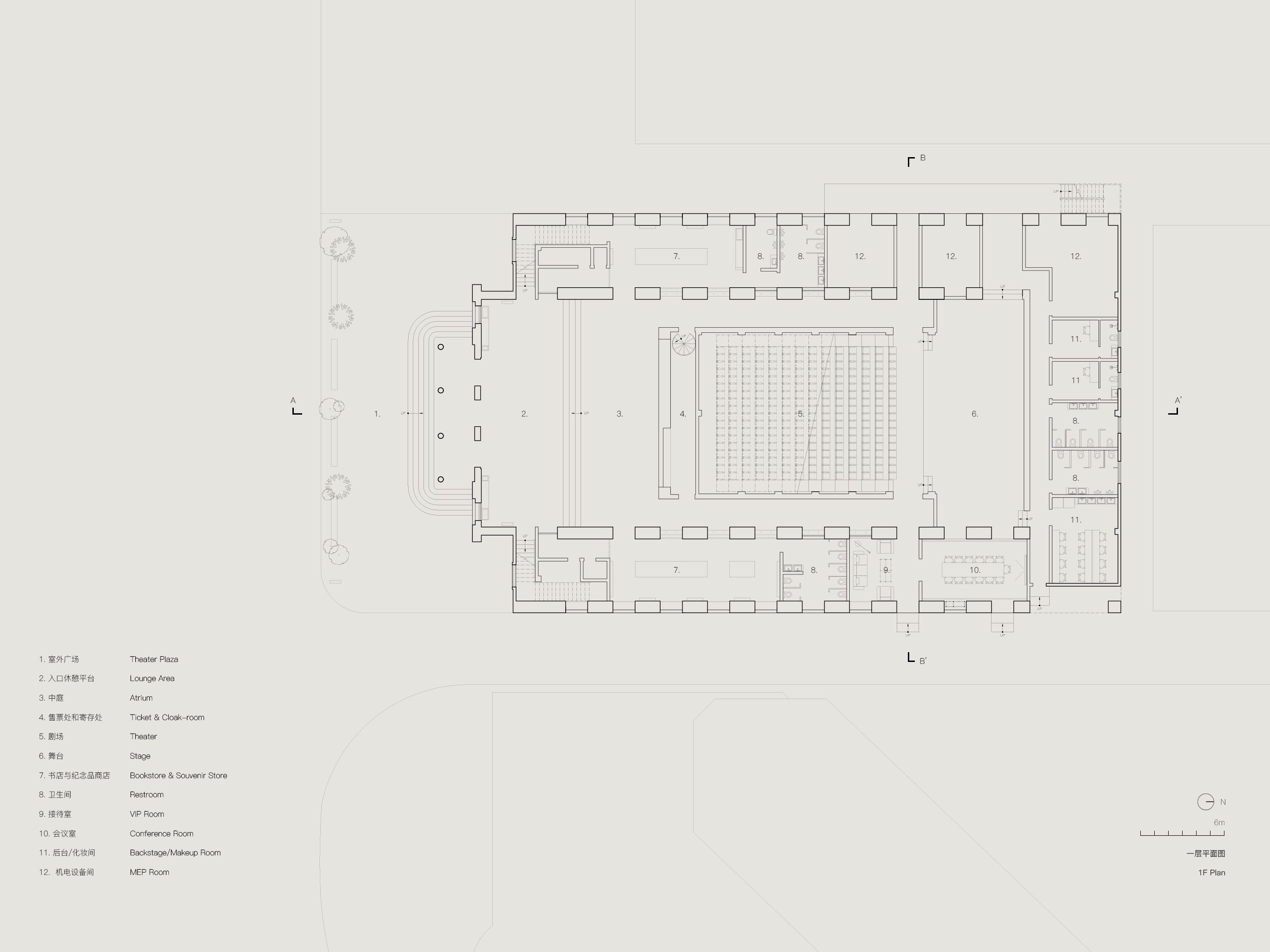
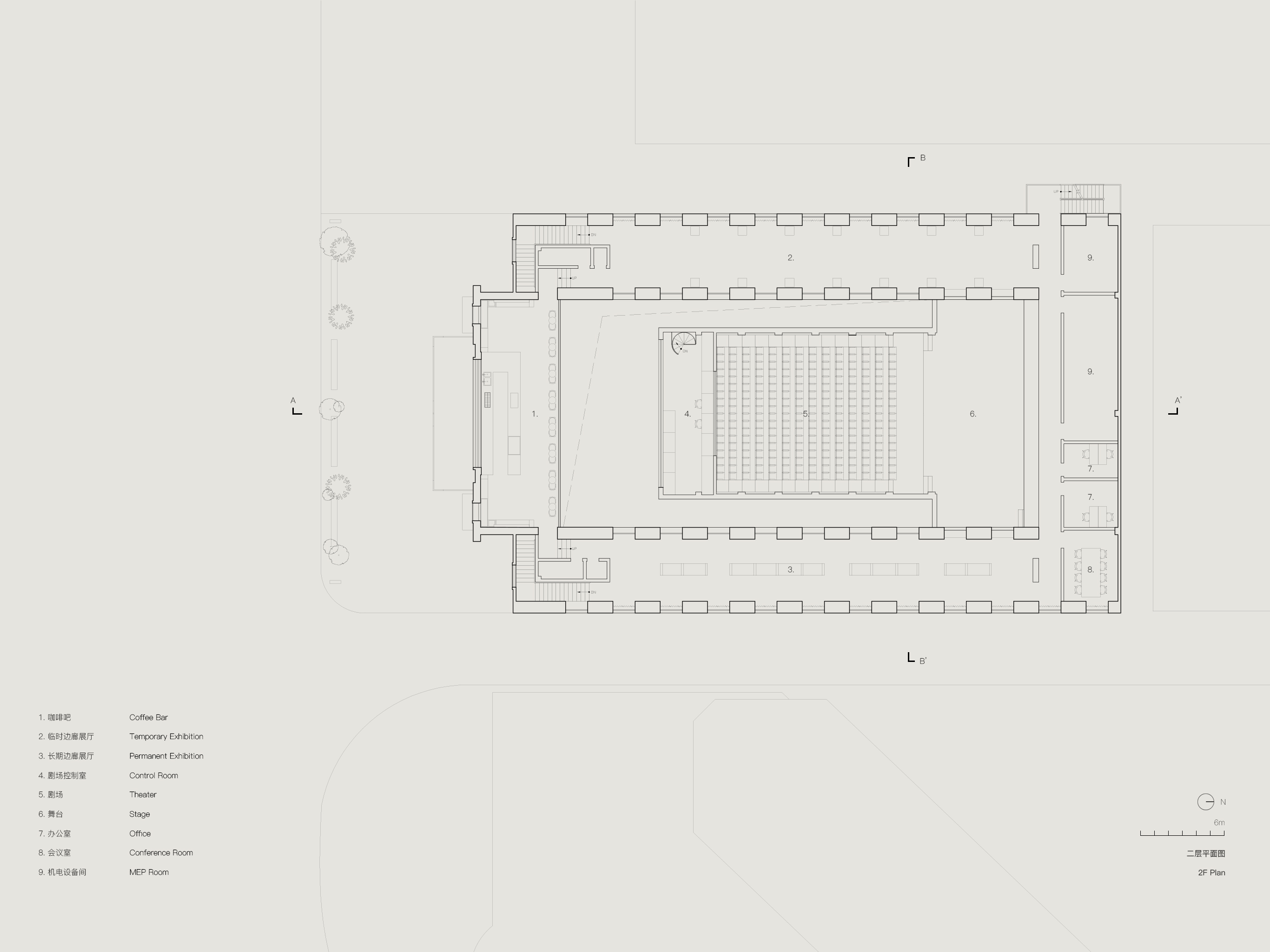
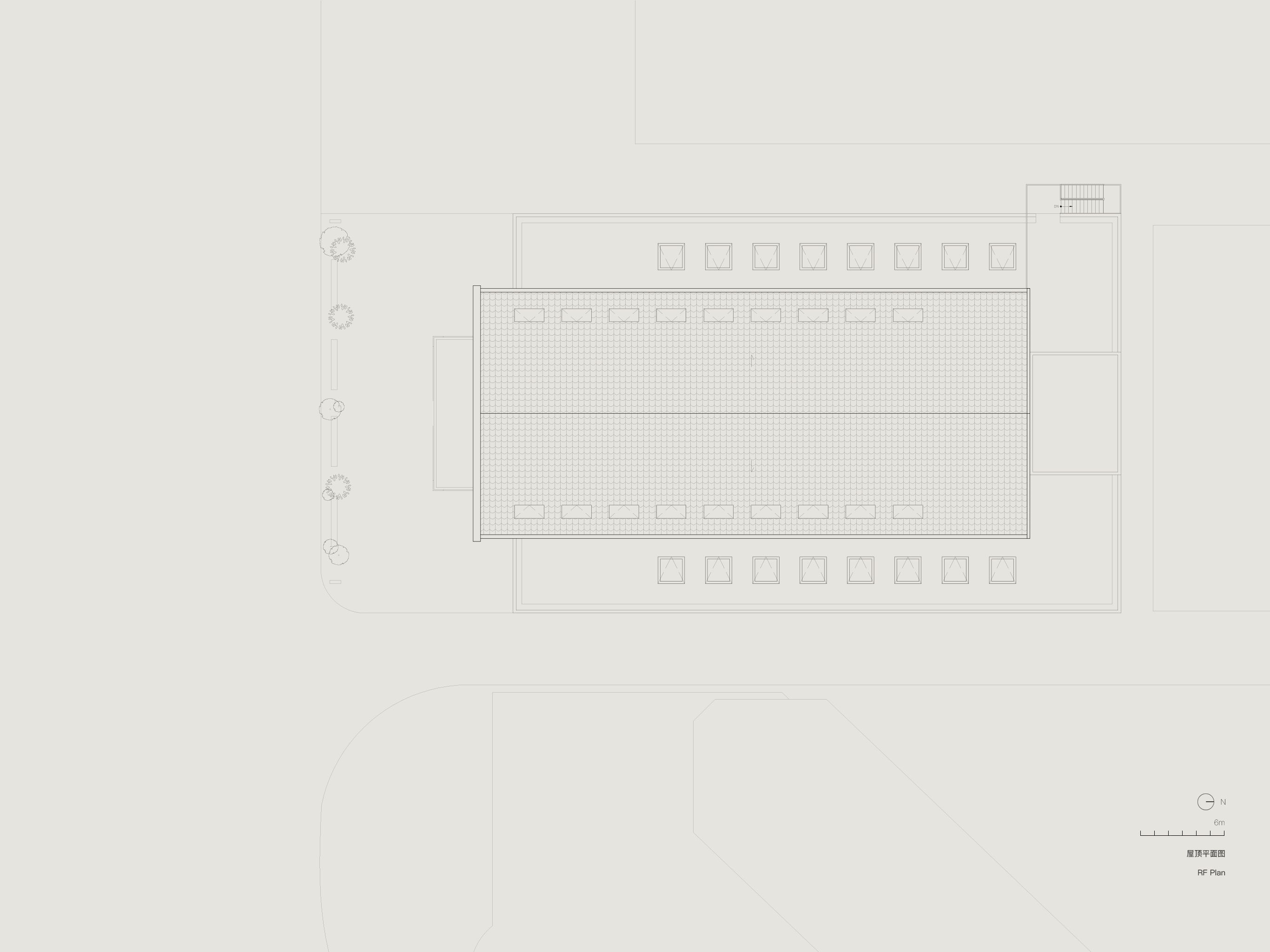
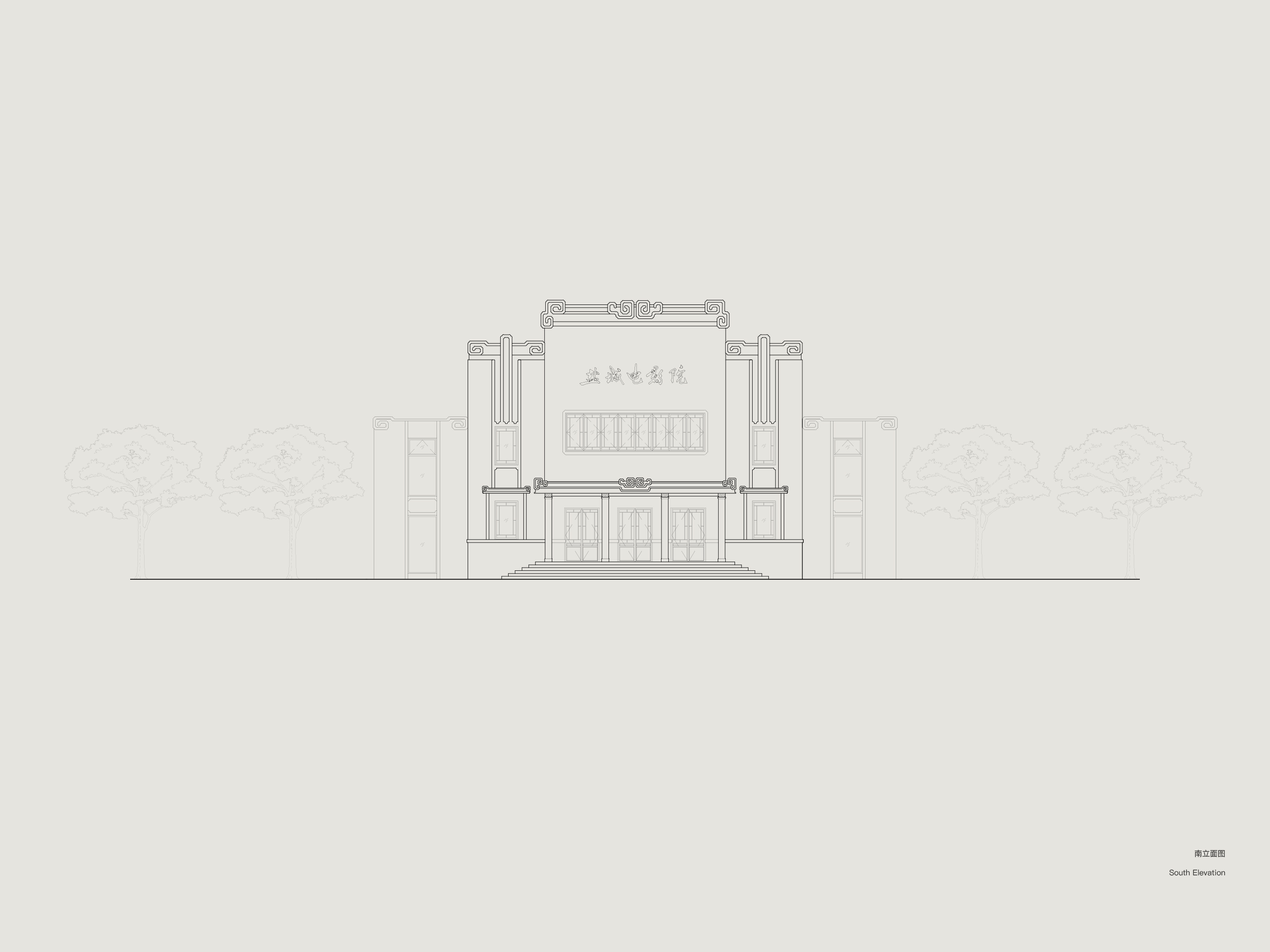
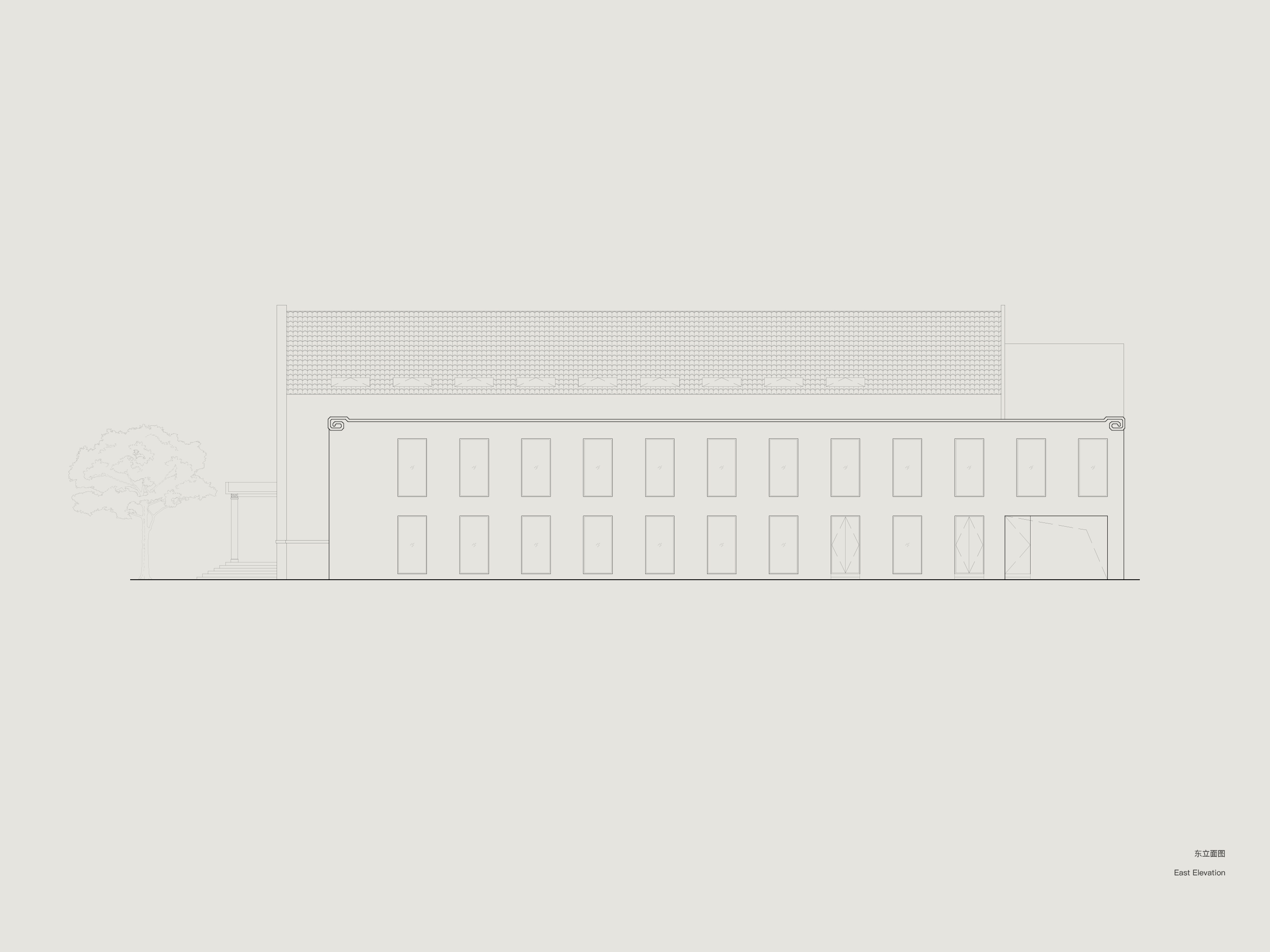
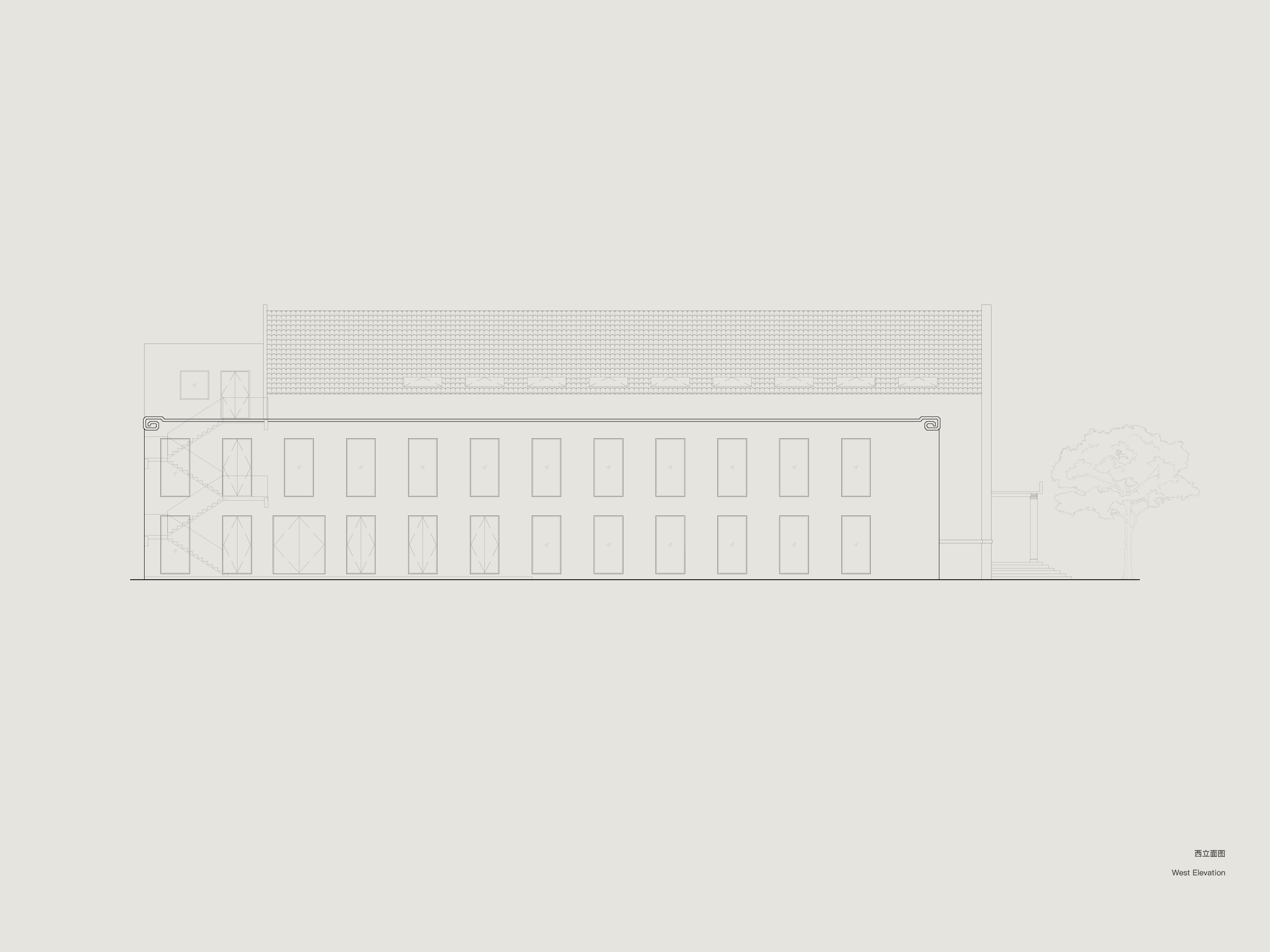
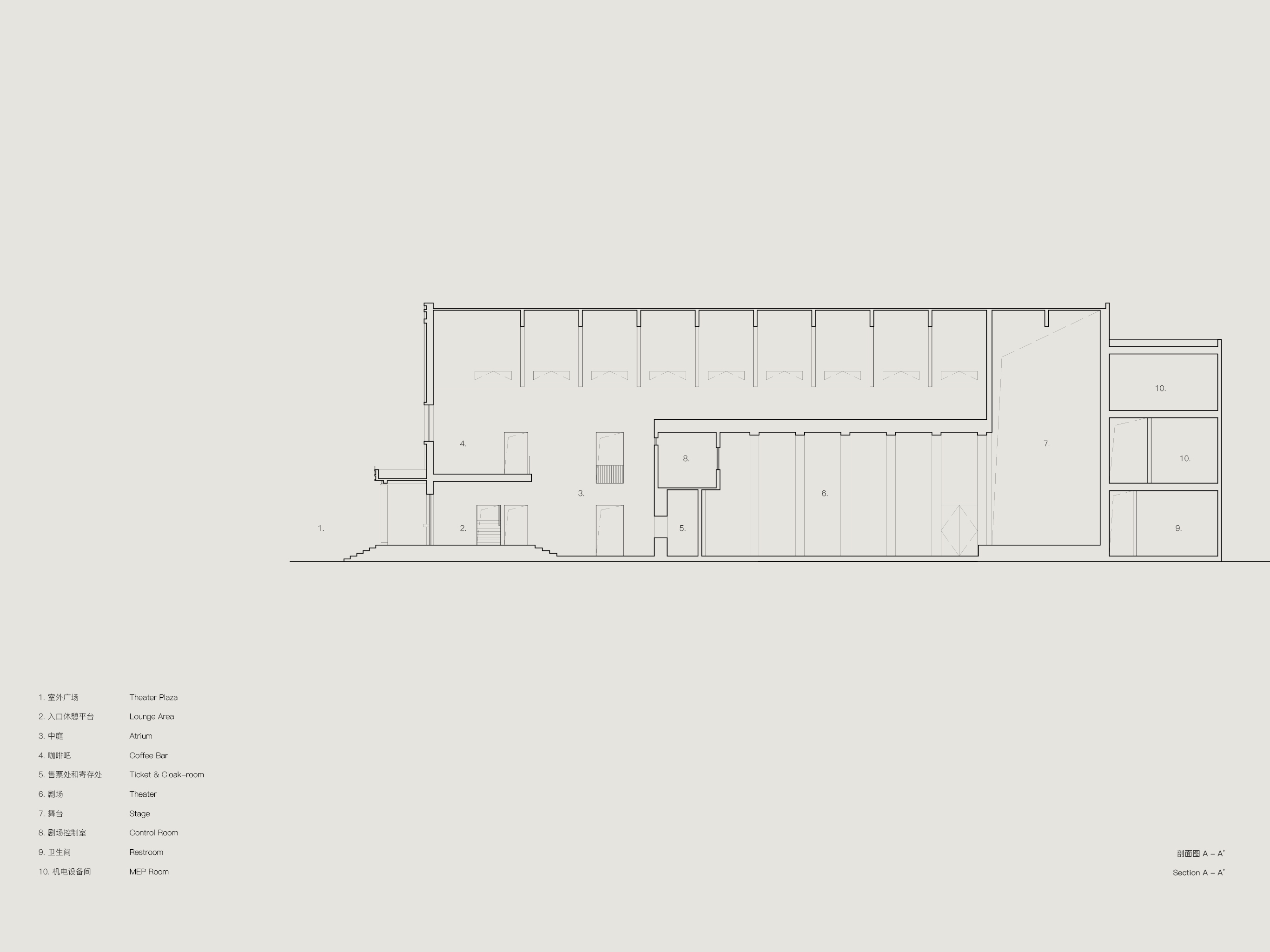
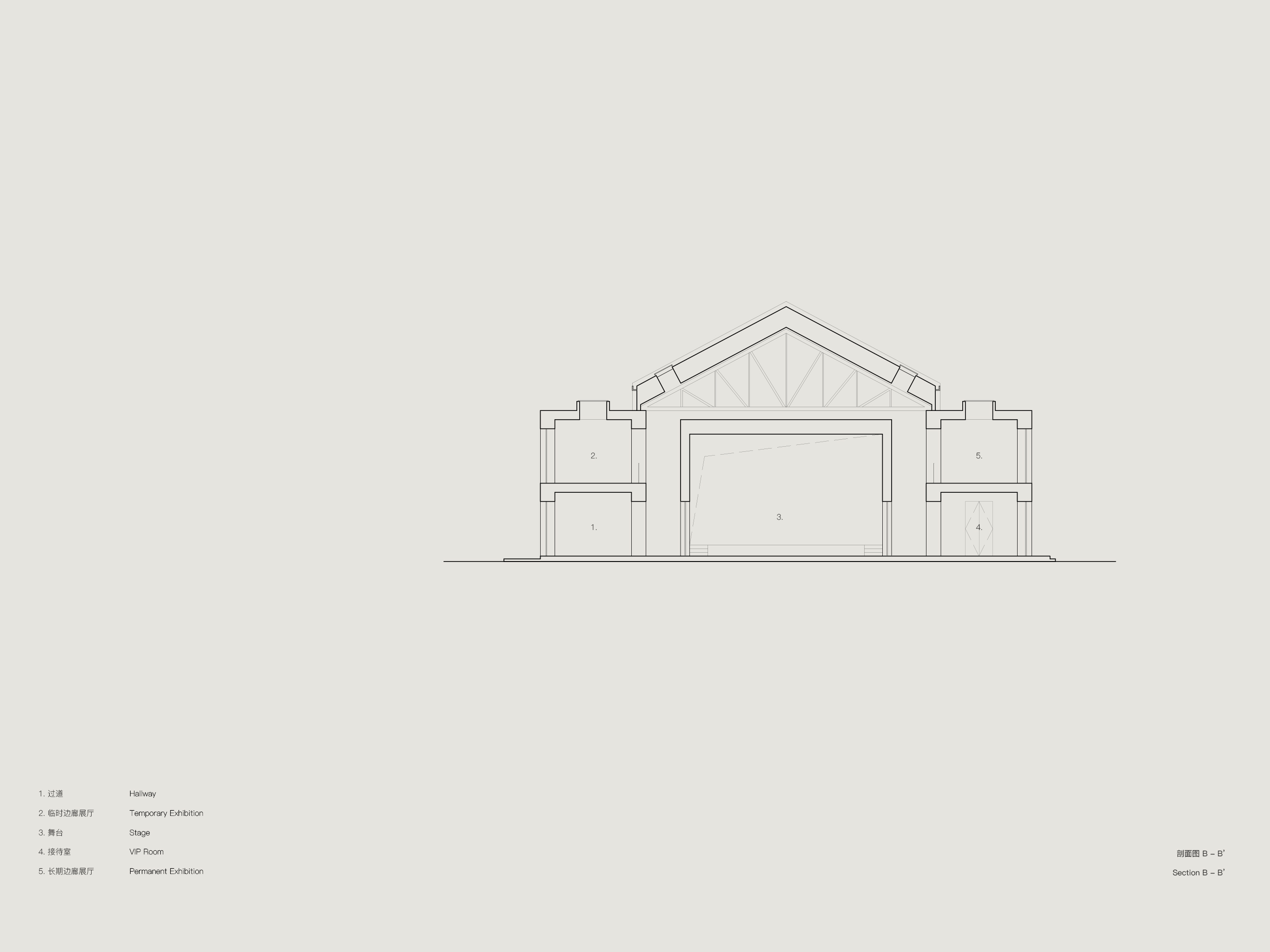
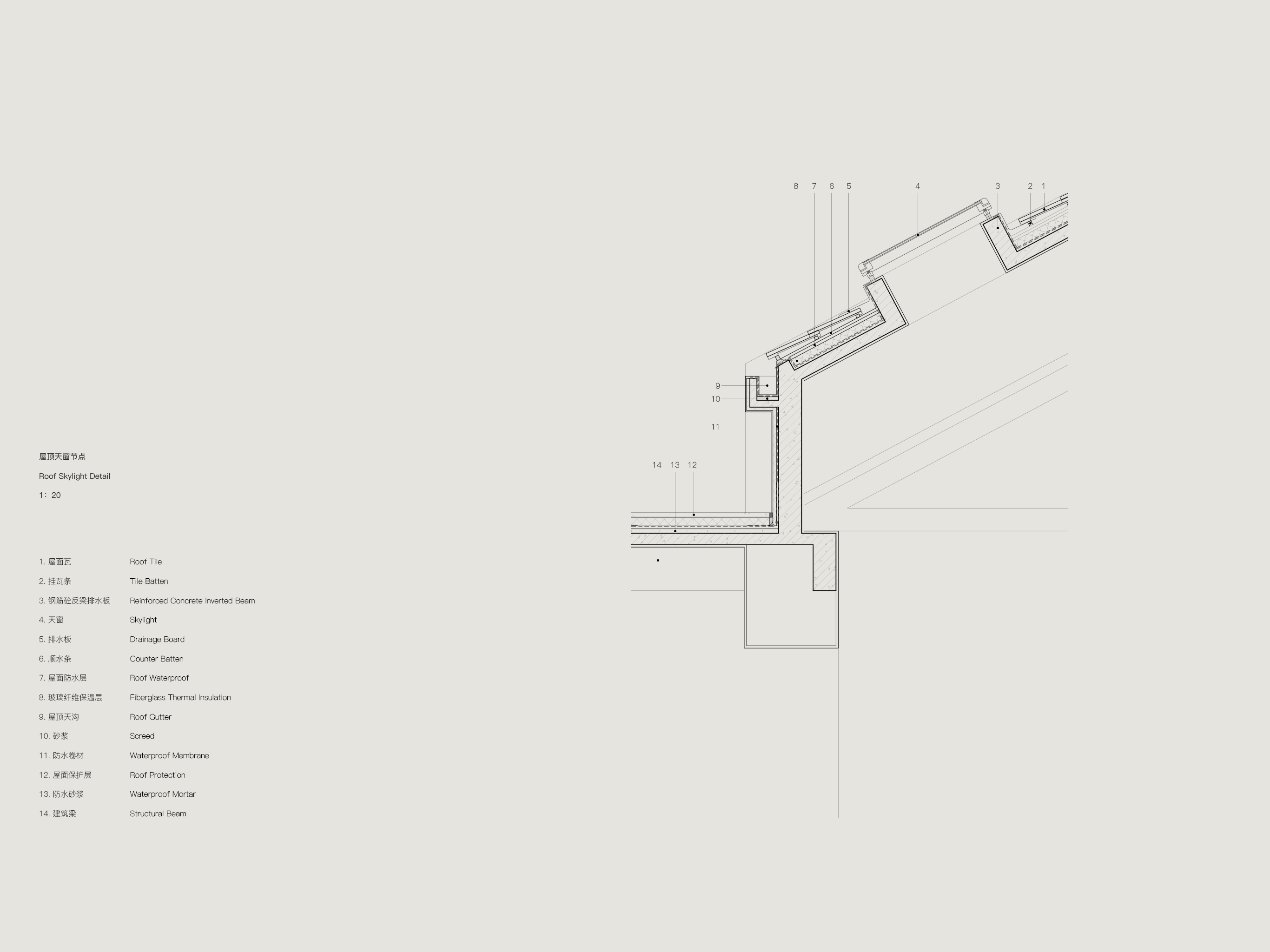
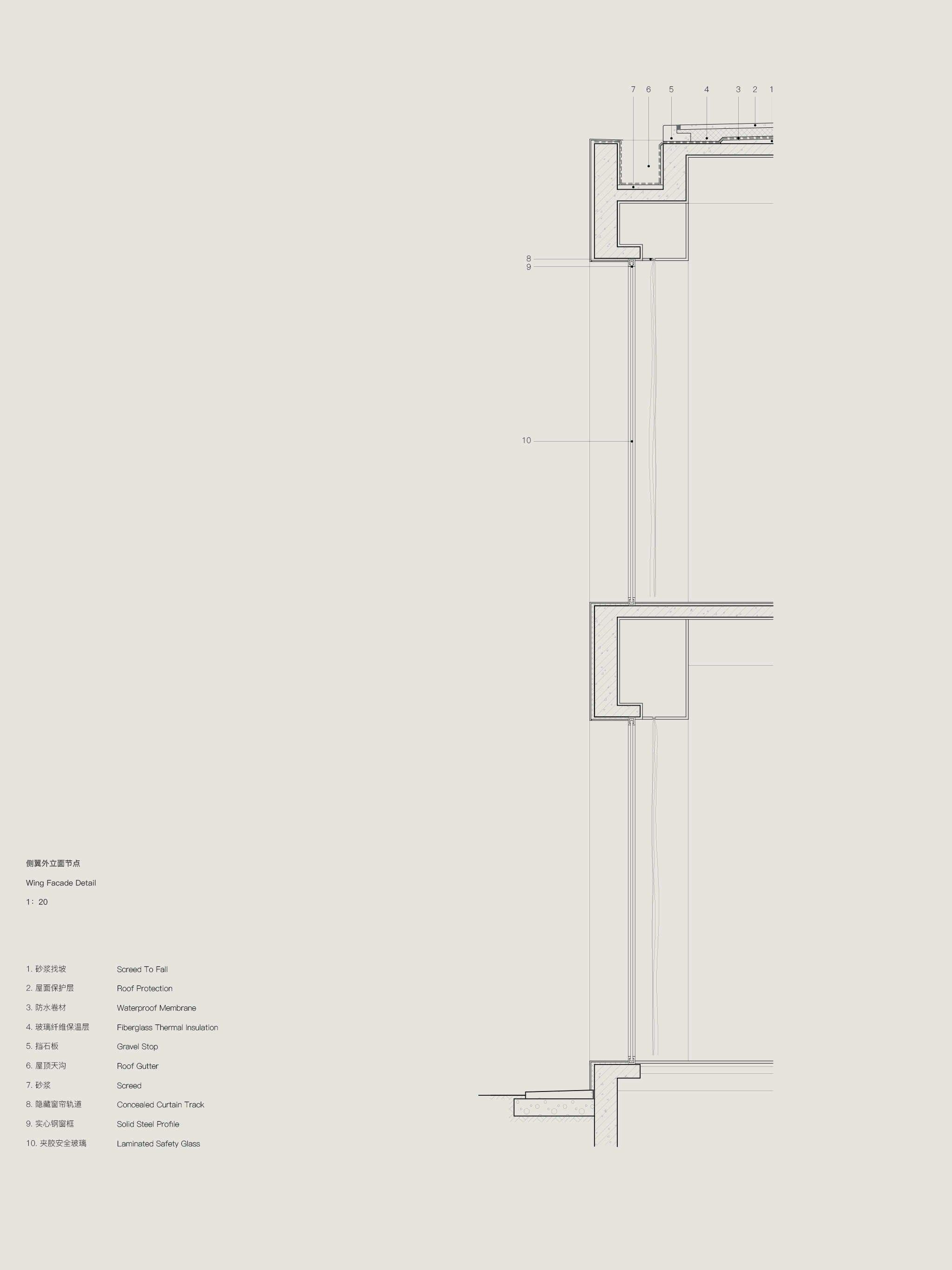
完整项目信息
项目名称:1956星剧场
项目类型:建筑与室内改造
项目地点:江苏省盐城市亭湖区建军中路96号
设计团队:袁愿,聂璇,李月,林宸西,邬旺达
业主:江苏省盐城市亭湖区城市资产投资有限公司
设计时间:2021年3月—2021年8月
建设时间:2021年11月—2022年4月
建筑面积:1155平方米
施工图设计:上海方度建筑设计事务所
建筑灯光顾问:上海方度建筑设计事务所
室内灯光顾问:汉歌照明科技有限公司
结构、机电、暖通顾问:上海创霖规划建筑设计有限公司
剧场及声学顾问:浙江大丰实业有限公司
施工团队:盐城市海瀛集团有限公司
摄影:胡彦昀,余舒扬
视频版权:OFFHAND PRACTICE & HALF HALF
版权声明:本文由Offhand Practice授权发布。欢迎转发,禁止以有方编辑版本转载。
投稿邮箱:media@archiposition.com
上一篇:苏州大悦春风里 / Benoy
下一篇:有方影像 | 汉嘉设计:杭州建设30年